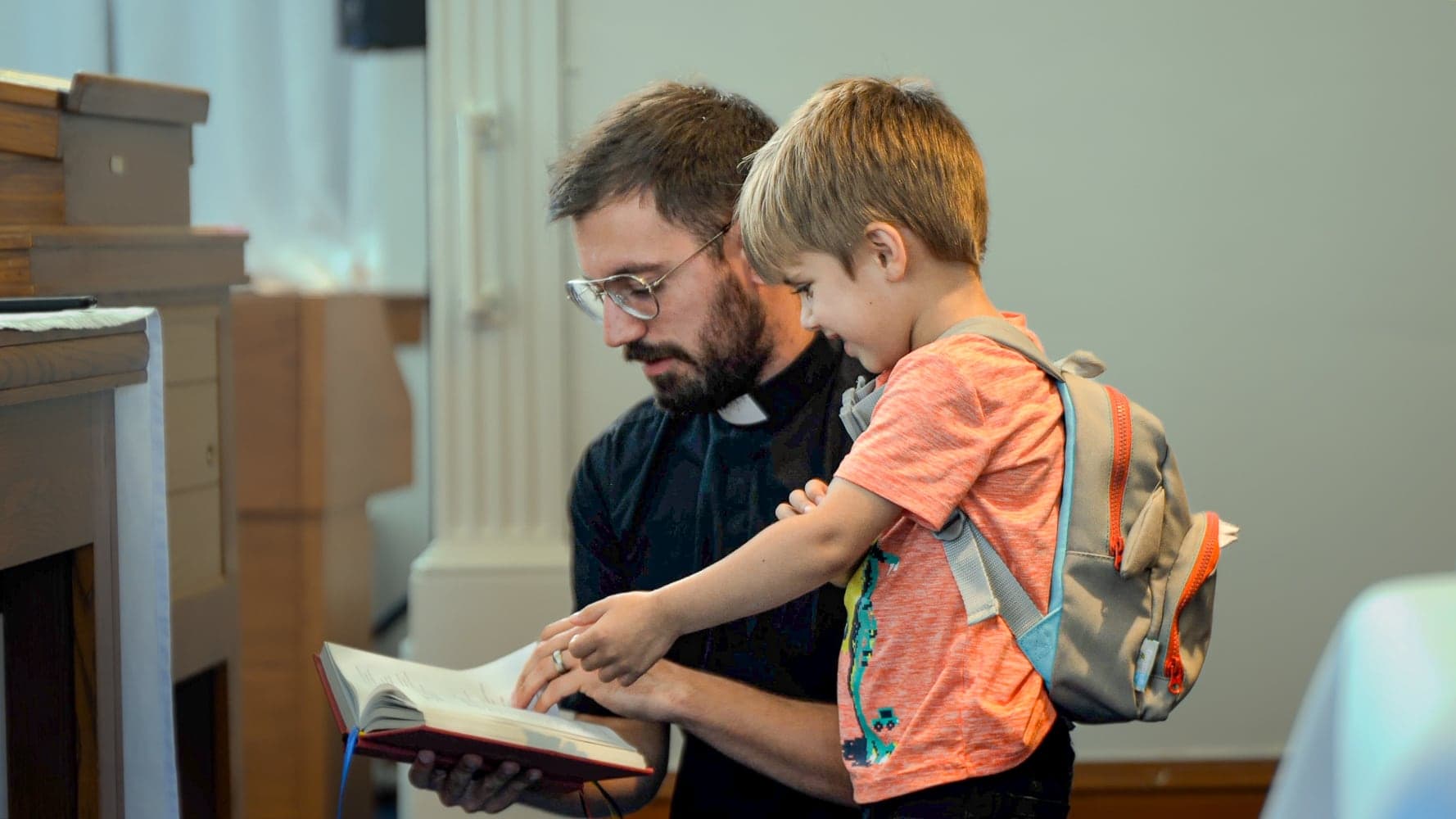“Blessed Lord, who caused all holy Scriptures to be written for our learning: Grant us so to hear them, read, mark, learn, and inwardly digest them, that we may embrace and ever hold fast the blessed hope of everlasting life, which you have given us in our Savior Jesus Christ; who lives and reigns with you and the Holy Spirit, one God, for ever and ever. Amen.”
–Collect for Proper 28 from the 1979 BCP.
As Anglicans we have an incredible heritage regarding the Bible. The Collect above was put in the first Book of Common Prayer by Thomas Cranmer, and has been in every BCP since. It reminds us that the Scriptures have been written for our instruction and gives some practical ways to learn them. Based on Romans 15:4, the prayers tells us that God is the One who caused the Scriptures to be written, and as 2 Timothy 3:16 tells us: All Scripture is God-breathed and profitable for teaching, for correction, for reproof, and for training in righteousness so that the man (or woman) of God may be equipped for every good work.
The prayer offers five suggestions for us to “take in” the Bible.
1) Hear them – In the first century through the fifteenth century century, the main way for most people to understand the Scriptures was by hearing them read in their local church. In our modern world we still read the Bible in church but we have other ways to hear the Bible: iPods, iPads, CDs, radio, and smartphone apps. A friend of mine downloads parts of the Bible to his iPod and he listens to it every morning as he takes his morning walk.
2) Read them – In the 21st century we are blessed to have an abundance of Bibles here in North America. We have an unbelievable privilege of having the Bible available in a variety of translations and paraphrases, with study guides and notes, available for our computers, iPads, smartphones, and Kindles.
In the 1500s there was an Englishman named William Tyndale who attempted to translate the Bible from Latin into the English language. He was branded a heretic by England and went to Germany where he translated the Bible into English by hand. Pocket-size versions of his Bible began to be smuggled into England and ordinary people were able to have their own Bibles. Tyndale was burned at the stake for his gift to the human race in 1537. A few decades later in 1611, his translation was used almost word for word in the King James Version – so ordinary people could read the Bible.
You and I are blessed to have the written Word because of the sacrifice of others who literally gave their lives, preserving it, translating it, and printing it – so we could read it ourselves.
3) Mark them – This means to underline, circle, highlight, and make notations in one’s Bible. It is okay to write in your Bible. Underline important passages that speak to you. Circle key words. Highlight connecting thoughts. Put question marks by things you don’t understand. Write other verses in the margin which relate to the passage. Write dates next to a verse when God speaks to you through the passage.
4) Learn them – What does the verse or passage really mean? What is the context of the passage? How does this apply today to my life and ministry? How many of the 10 Commandments do you know? How many of Jesus’s Commandments do you know? Can you explain God’s plan of Salvation? Do you know any of the promises of God which apply to your life now? Can you share any of the miracles which Jesus did? Can you explain any of his parables and what they mean? God’s people need to learn the Word of God. Learning the Word of God includes studying and memorizing it.
5) Inwardly digest them – This means to meditate on them; reflect on them; and think on them. The Hebrew word for meditate is a word picture of a cow chewing its food. How does a cow eat the grass? Chews on it; swallows it; brings it back up; chews it some more; swallows it; brings it back up; and chews it some more. This is what we do with the Word of God. We are to inwardly digest it; think about it.
What are you doing with your copy of the Scriptures? I want to encourage you to hear them, read, mark, learn, and inwardly digest them– so that you may embrace and ever hold fast the blessed hope
of everlasting life, which God has given us in His Son, Jesus Christ.
The Most Rev. Dr. Foley Beach
Archbishop and Primate
Anglican Church in North America






